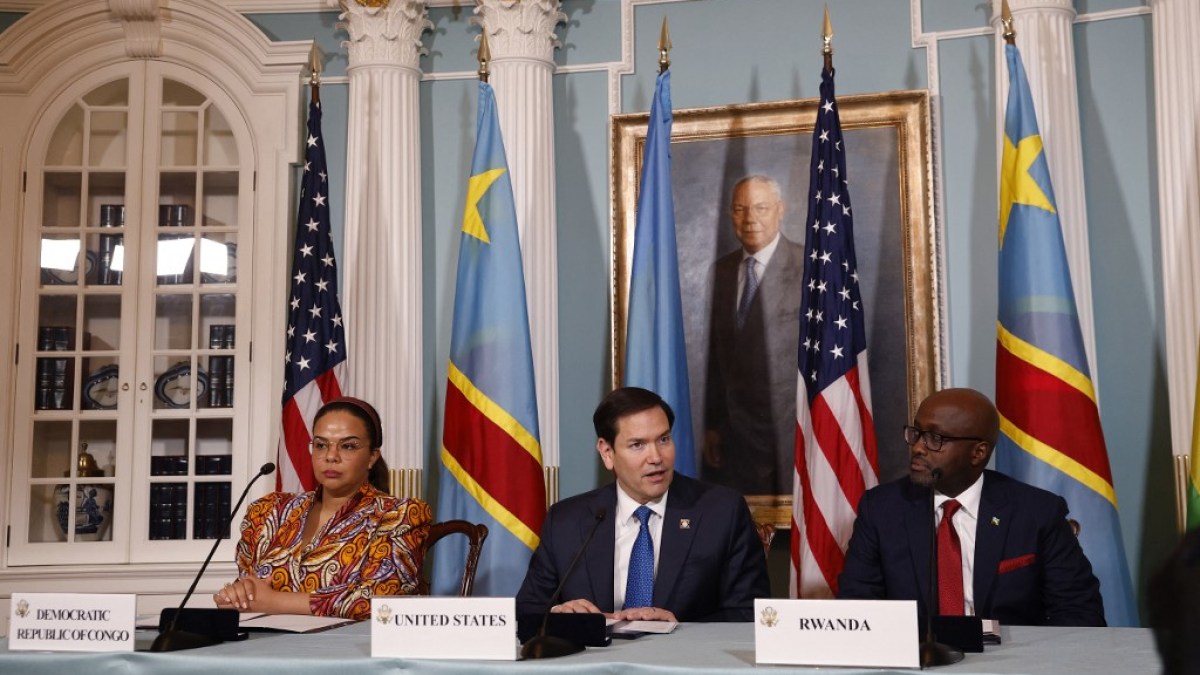By May 2, Rwanda and the Democratic Republic of the Congo (DRC) have agreed to reach a peace agreement that will obligate them to respect one another’s sovereignty and refrain from providing military support to armed groups.
The two men, who did not shake hands during a tense meeting on Friday in Washington, DC, were DRC Foreign Minister Therese Kayikwamba Wagner and her Rwandan counterpart Olivier Nduhungirehe, who did not physically shake hands.
Two days after Qatar brokered an unexpected truce between the African countries, the deal, which is part of diplomatic efforts to put an end to the violence in eastern DRC, was reached.
The United States gathered the two nations’ foreign ministers to discuss investment opportunities in the troubled but mineral-rich east, where fighting between DRC forces and M23 rebels has gotten worse since January. In a deadly attack that has resulted in thousands of fatalities, the M23 has taken control of important eastern cities.
Rwanda, which has repeatedly refuted the accusations, claims that M23 is supported by the US and the UN, and that it is defending its security against hostile militias operating in the DRC, including remnants of the Hutu-led organization responsible for the genocide in 1994.
The two countries agreed to end military support for non-state armed groups in Friday’s joint declaration, which avoided naming M23 directly.
According to Wagner, the agreement amounted to a demand that Rwandan forces withdraw, as stated in a UN Security Council resolution.
There is hope for peace, the good news. The real news is that peace needs to be earned, and it will require sincerity, honesty, and transparency, she said.
Nduhungirehe claimed that US President Donald Trump had “really changed the conversation” about the DRC, including by referencing efforts to boost private sector investment in the US.
Rubio called the agreement a “win-win” and claimed that it could spur significant US-backed investment in mining and energy fields, which China already has a significant influence on. Massad Boulos, the new US envoy to Africa, recently traveled to both countries and pleaded with Kigali to stop supporting M23 and halt troop deployments.
At least six truces between the two parties that ended up being broken have been reached since 2021. The most recent incident of violence since January has resulted in the deaths of many people.
According to Martin Ziakwau Lembisa, the US pressure led to diplomacy between the two governments.
Source: Aljazeera

Leave a Reply